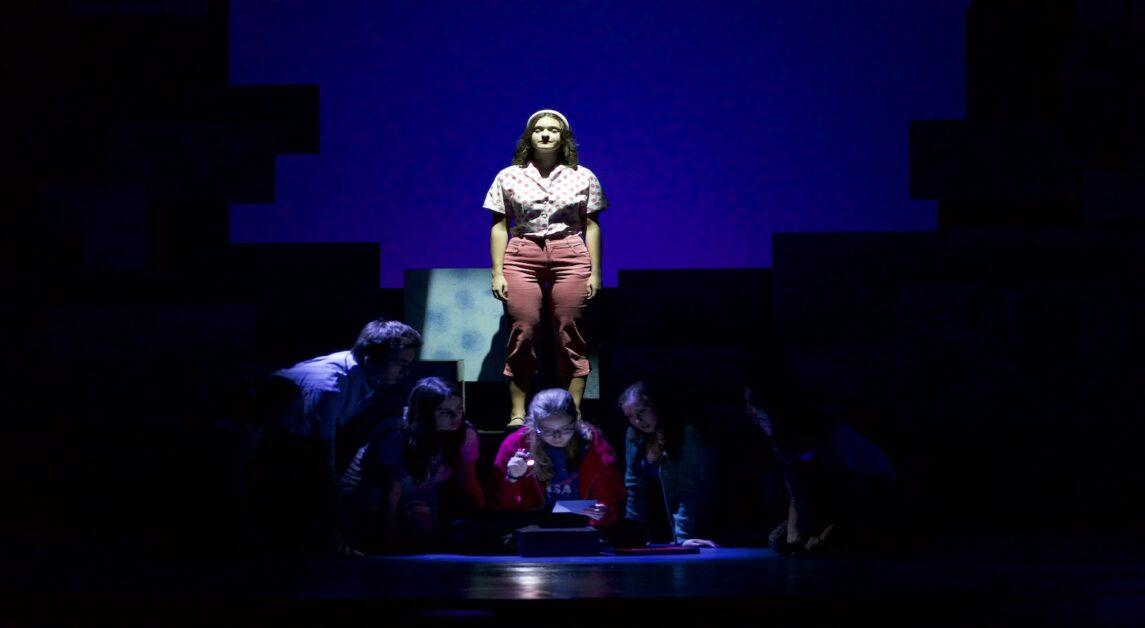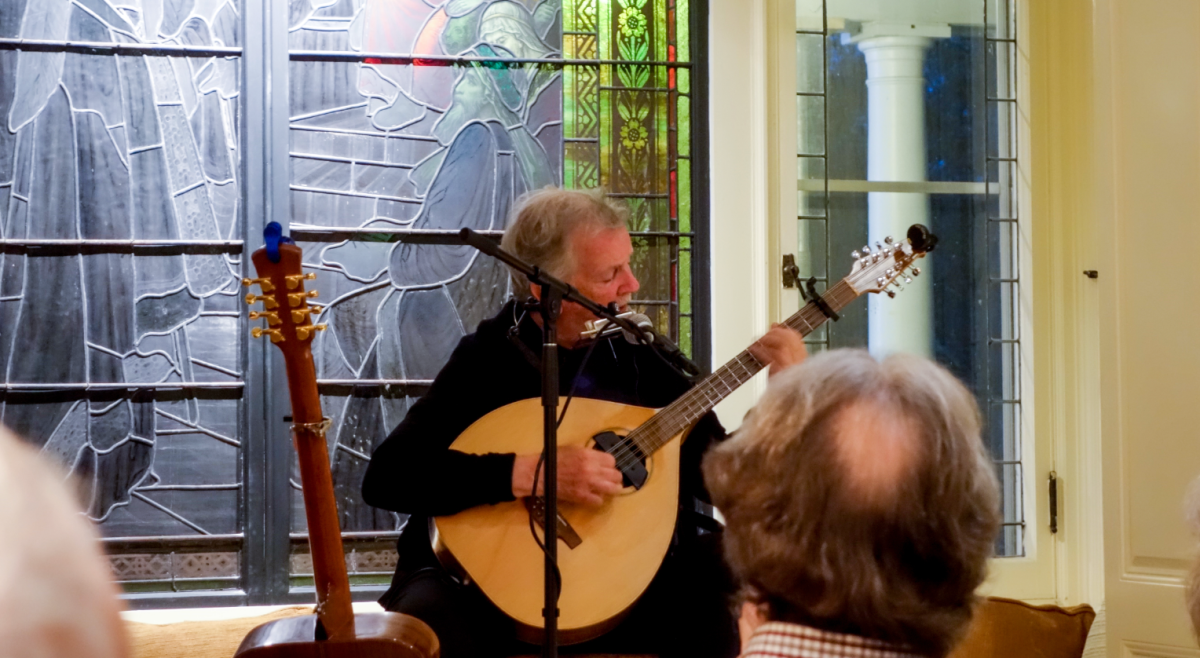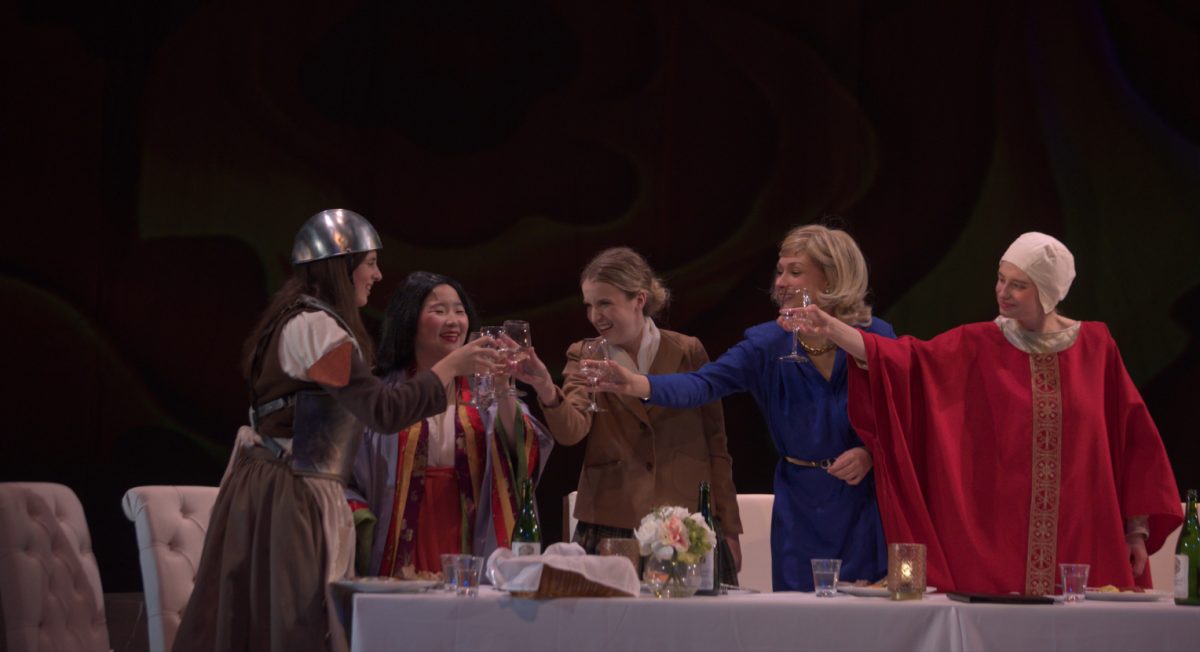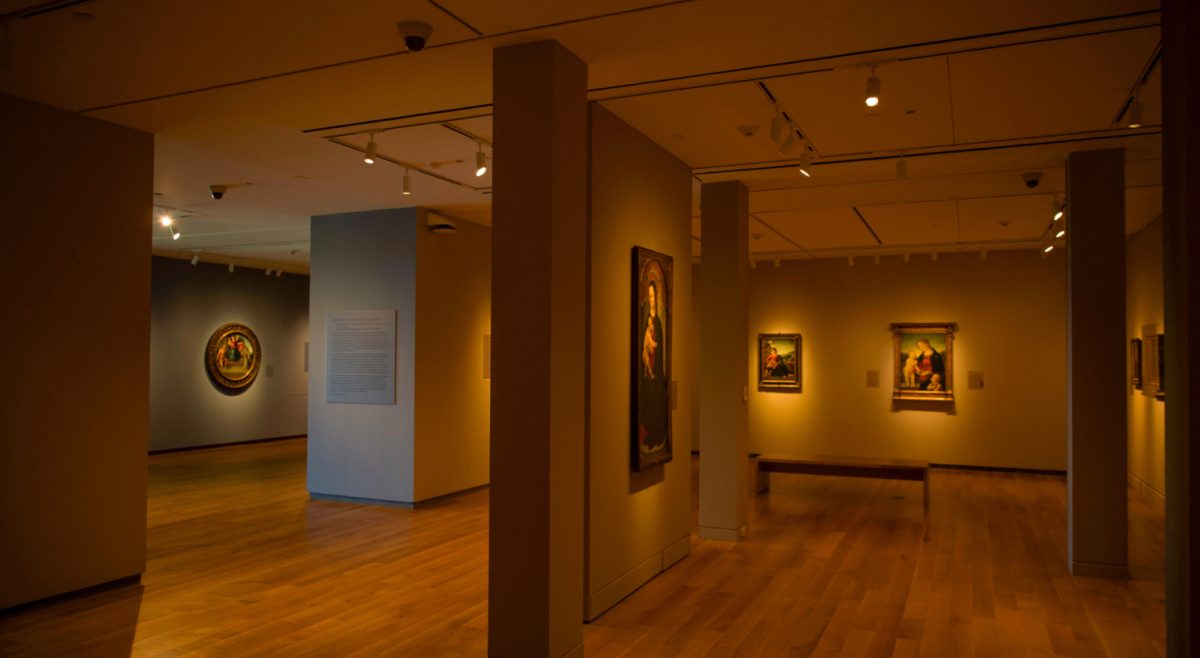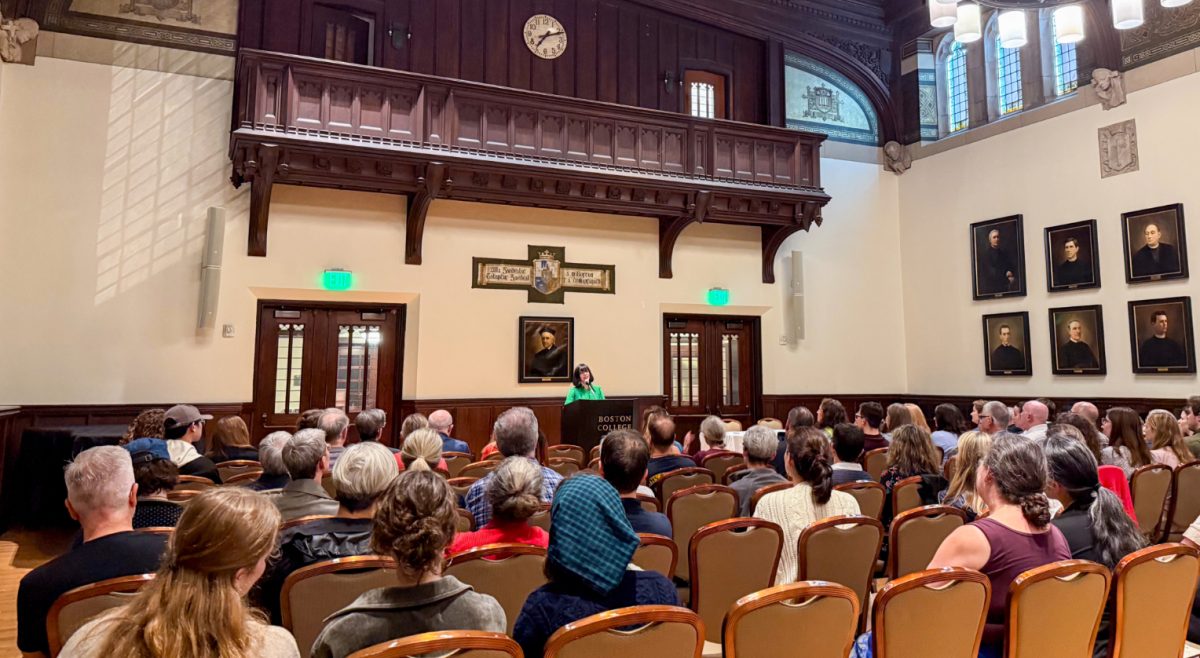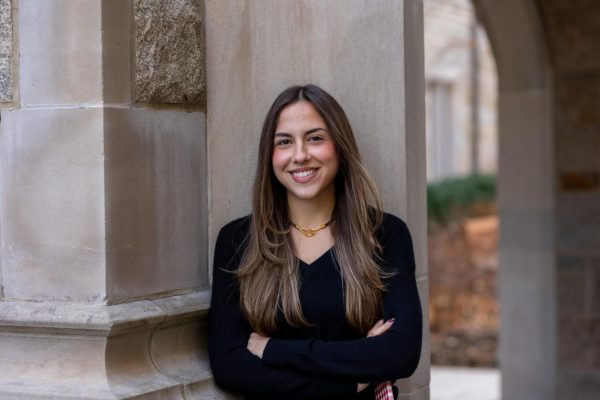“Imaginative storytelling.”
These were the words director Luke Jorgensen used to summarize what the audience will experience when watching the Boston College theatre department’s production of The Curious Incident of the Dog in the Night-Time.
The show will run from Thursday through Sunday at the Robsham Theater Arts Center.
Based on the 2003 novel by Mark Haddon, the play follows Chris, a 15-year-old with autism, as she embarks on a journey of self-discovery and growth while solving the mystery behind the murder of a dog.

(Alina Chen / Heights Staff)
While the original text has the main character as a boy called Christopher, BC’s version of the show opted to change the protagonist to a girl, and shortened the name to Chris.
Jorgensen, who is the acting theatre department chair and professor of the practice, said he had the opportunity to discuss the creative matter with Mickey Rowe, who was the first actor with autism to play the part. Jorgensen said Rowe indicated that he deems the gender swap as an interesting measure, considering that many people automatically associate autism with young boys, while the condition affects all genders.
Faith Wladyka, MCAS ’26, delivers a stellar performance as the protagonist. From her repeated hand gestures to constant rocking back and forth, her portrayal of a girl on the spectrum surpasses any expectations the audience could have.
The story is set in Swindon, England, so it required the cast to speak in British accents, which the actors executed impressively. Casey Corcoran, MCAS ’26, and Abigail Wickman, MCAS ’24, who play Chris’ father and mother, respectively, likely had many audience members convinced they were actually British.
Megan Malcolm, MCAS ’24, who plays Siobhan—Chris’ teacher and the person to encourages her to write the book on the investigative case—also made an impact with her Irish accent.
In order to collect creative experience and inspiration for his directive work, Jorgensen said he went to London and trained with the Frantic Assembly group this past summer. He said the hands-on experience allowed him to bring back those movement-focused techniques which ultimately make this production different from the Broadway version. On top of that, the music and projections, made by George Cooke, were specifically crafted for the show, guaranteeing smooth transitions for the fast-paced scenes.
The production’s dynamic nature, with its sudden change of scenery and gradual increase in music, was also intended as a means of authenticity, according to Jorgensen.
Part of the play’s purpose was “representing how a person on the spectrum, like Chris, often feels sensory-overloaded at times,” Jorgensen said.
Jorgensen said character development was important to the central message of The Curious Incident of the Dog in the Night-Time.
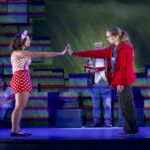
(Alina Chen / Heights Staff)
“It is about the journey the character takes where, by the end, she realizes she can do anything,” Jorgensen said.
Facts regarding neurodiversity will also be displayed in the lobby, so the audience can inform themselves on the topic, both before and after watching the show, according to Jorgensen.
Jorgensen said as a way of being inclusive to the community, and following Rowe’s advice, the theatre department decided to make its Sunday show a “relaxed performance,” which means it will be tailored to the people with sensory needs.
These sensory accommodations include different light settings which allow the audience to move around, as well as simulcasting in a separate room, with a cool-down space, for those feeling overwhelmed, according to Jorgensen. There will also be a program which will let the audience know beforehand when loud sounds will be played, Jorgensen said.
Ultimately, according to Jorgensen and Max Rodriguez, associate director and MCAS ’26, the main goal of the production is to get the audience to experience the story, rather than being told what it is about.
“In a broad sense, it is about the fact that, no matter [how differently] our minds work … and the way we view … and interact with the world, we all come at things with various strengths and support needs—whether you’re someone who’s neurodivergent or not,” Rodriguez said.

